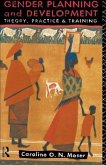Sherry Olson has almost always worked with others, inspiring them to ground their research in an empathetic understanding of the human condition. Through this team work, she has made signal contributions in fields as diverse as environmental, social, urban, and women's histories, as well as public health, demography, and geographic information systems (GIS). In this volume, a critical assessment of her life's work is complemented by original pieces advancing our knowledge in these remarkably diverse fields. From the environmental impact of colonial settlement in New Zealand to racial segregation in Chicago, from the demography of the Mauricie and marriage patterns of Quebec City to the inns, gay spaces, and landladies of Montreal, this collection demonstrates the complexity of sharing space in the past and its centrality to any critical understandings of the global challenges we face in the present. This book is published in English. - Sherry Olson a presque toujours travaillé en équipe, incitant ses collègues à ancrer leurs recherches dans une compréhension empathique de la condition humaine. Cela lui a permis d'offrir des contributions majeures dans un large éventail de domaines, notamment l'histoire de l'environnement, des relations sociales, de la vie urbaine et des femmes, la santé publique, la démographie et les systèmes d'information géographique. Dans cet ouvrage, des études originales viennent s'ajouter à l'évaluation critique qui est faite de l'oeuvre de sa vie, permettant ainsi d'approfondir nos connaissances dans ces domaines. En abordant des sujets allant de l'impact environnemental de la colonisation en Nouvelle-Zélande à la ségrégation raciale à Chicago, en passant par la démographie de la région de la Mauricie, les modèles matrimoniaux de Québec et les auberges, les quartiers gais et les logeuses de Montréal, ce recueil démontre toute la complexité du partage de l'espace dans le passé et son importance cruciale pour une compréhension critique des défis globaux de notre époque. Ce livre est publié en anglais.
Hinweis: Dieser Artikel kann nur an eine deutsche Lieferadresse ausgeliefert werden.
Hinweis: Dieser Artikel kann nur an eine deutsche Lieferadresse ausgeliefert werden.








